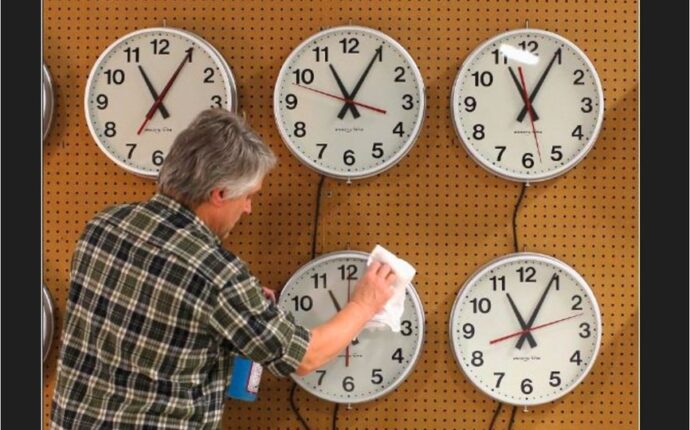DAYLIGHT SAVINGS TIME or DAYLIGHT SHIFTING TIME

By Maxine Miller. Riverina State Member. Wangaratta
Just as sunflowers turn their heads to catch every sunbeam, so to have humans discovered a simple way to get more sun. On Sunday 1 October Victoria, Tasmania, South Australia, NSW and the ACT, move their clocks an hour ahead; losing a precious hour of sleep in the process. I always feel that I’ve lost that precious hour of early morning when the sun rises and the birds sing their beautiful greeting for the start of a new day! Yes, we will again have to suffer the ritual of one of the worst government decisions with respect to our health – Daylight ‘Savings” Time (DST) or rather it should be known as Daylight “Shifting” Time! The government has never considered the fact that children, particularly, living in regional Australia, are most affected by the moving of the time of sunrise and sunset. Children need many more hours of sleep than adults. The solution is NOT to turn the clock back, but start school later and let kids sleep more.
The Sleep Foundation of Australia, says: “Whilst moving the clocks forward means we “gain” an extra hour of daylight, we also lose an hour of sleep. The sleep disruption occurs because our circadian rhythms – 24-hour cycles that are part of the body’s internal “clock” – are timed to match the environmental cycle of light and darkness, and this is thrown out of sync when we are waking at a time the body clock is programmed for sleep.” An Australian study spanning 20 years found that the October time transition period increased cardiac arrest by 13% and remains higher over the first two days. This study has also shown that chronic sleep disturbance is a significant risk factor in the development of cancer, mental health issues, depression, anxiety and post traumatic stress disorder. Not to mention the increase in road accidents, increase in sick days, higher suicide rates and overall reduction in productivity.
TreeHugger Labs in the USA proved conclusively that DST is counterproductive. An Australian researcher said: “Basically if people wake up early in the morning and go to bed earlier, they do save artificial illumination at night and reduce electricity consumption in the evening. But we also found that more electricity is consumed in the morning. In the end these two effects wash each other out.” TreeHugger research has also shown that eliminating DST could go a long way to solving the problem of Global Warming. The California Energy Commission says that “Daylight Savings Time “makes” the sun “set” one hour later.” TreeHugger Labs ran the numbers and have determined that if DST runs half the year for an hour a day that is fully 1/48th of total sun exposure to the sun that could be eliminated with the cancelling of DST, almost 2% of solar heat gain annually! That’s huge. So, Tree Hugger says: “Take Back the Night and Fight DST. The last thing we need now is an extra hour of sunlight.”
TIPS ON HOW TO ADJUST TO DST
The following is a list of natural strategies to help your body resync after the time change:
- Go to bed 15 – 20 minutes earlier for 3 or 4 days before the clocks move forward
- Wake up 30 minutes earlier on Saturday and Sunday to minimize the impact of getting up earlier on Monday
- Go outside in the sunlight in the early morning
- Exercise in the mornings over the weekend and meditate afterwards. To learn how go to: m.youtube.com Joe Dispenza guided meditation.
- Consider setting your clock ahead on the Friday evening to allow an extra day to adjust.
- Switch off electrical devices or drastically reduce usage, even “unplugging” over the weekend of the DST switch-over, so that you can optimize your sleep.
- Lastly, pay attention to your diet, consume plenty of fresh whole foods, minimal amounts of processed foods, and keep sugar consumption low.
Throughout its long and fascinating history, DST has had a remarkable impact on a wide variety of unexpected areas – from Middle East terrorism to feuding twin cities, voter turnout to time-change riots, radio stations to trick-or-treaters, and opera performances, to manslaughter charges! So, my final word is during Daylight Savings Time making sure you are getting enough sleep may be more important than ever. One of the keys to optimizing your sleep is going to be early enough, because if you have to get up at 6.30am, you are just not getting enough sleep if you go to bed after midnight. You really need 7 – 9 hours of sleep on a consistent basis.
You may try any of the suggestions above OR do as I do, ignore DST. The luxury of working from home allows me to rise every morning according to my own body rhythm instead of as prescribed by the government.


